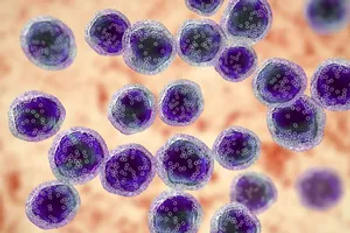
Nicole Ross, MSN, CRNP, AOCNP, nurse practitioner for the department of hematology/oncology at Fox Chase Cancer Center, discusses the challenges of treating neuroendocrine tumors in large cancer centers.

Nicole Ross, MSN, CRNP, AOCNP, nurse practitioner for the department of hematology/oncology at Fox Chase Cancer Center, discusses the challenges of treating neuroendocrine tumors in large cancer centers.

Nicole Ross, MSN, CRNP, AOCNP, nurse practitioner for the department of hematology/oncology at Fox Chase Cancer Center, discusses how large cancer centers are able to manage adverse events for individuals with neuroendocrine tumors.

Nicole Ross, MSN, CRNP, AOCNP, nurse practitioner for the department of hematology/oncology� at Fox Chase Cancer Center, discusses how large cancer centers are able to manage care for individuals with many different physicians.

Mei Ka Fong, PharmD, BCOP, said oral oncolytics have traditionally always been a major part of the treatment for neuroendocrine tumors.
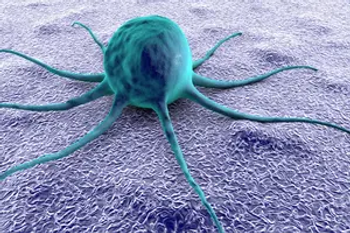
Nicole Ross, MSN, CRNP, AOCNP, nurse practitioner for the department of hematology/oncology at Fox Chase Cancer Center, discusses the importance of pharmacists in helping treat individuals with neuroendocrine tumors.

Clinicians explored at-home monthly injections of somatostatin analogues during the early days of the COVID-19 pandemic in order to keep patients out of health care facilities as much as possible.

Kaushal Nanavati, MD, assistant dean of wellness and director of integrative medicine and survivorship at the Upstate Cancer Center discusses the different treatment options that could help individuals with neuroendocrine tumors, emphasizing the importance of nutrition.

Experts address cases for and against the use of surgical resection in the treatment of patients with neuroendocrine tumors and liver metastases.

Kaushal Nanavati, MD, assistant dean of wellness and director of integrative medicine and survivorship at the Upstate Cancer Center discusses what the different kinds or research shows about integrative medicine and the potential risk of this treatment.
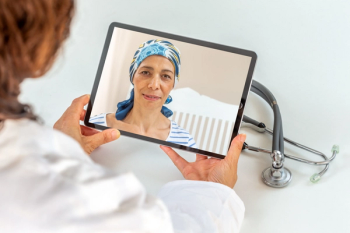
Nicole Ross, MSN, CRNP, AOCNP, nurse practitioner for the department of hematology/oncology at Fox Chase Cancer Center, discusses how large cancer centers provide patient-centered care.

Surufatinib targets both the VEGF receptor and the CSF1R receptor, which is a unique mechanism of action.
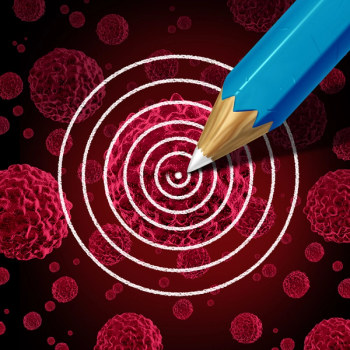
Rodney Pommier, MD, FACS, professor of surgery, Oregon Health & Science University, provides conclusions based on the prospective study findings investigating the treatment of carcinoid crisis without perioperative octreotide.

Kaushal Nanavati, MD, assistant dean of wellness and director of integrative medicine and survivorship at the Upstate Cancer Center discusses what integrative medicine is and how it can be used in conjunction with established cancer treatments.

Kaushal Nanavati, MD, assistant dean of wellness and director of integrative medicine and survivorship at the Upstate Cancer Center discusses how integrative medicine can be used with cancer treatments and what the benefits are.

Drug dose and monitoring should be individualized based on patients’ unique bone marrow health profile with their age, comorbidities, and prior marrow toxic drug use accounted for.

In addition to the vital clinical role that pharmacists play, Mei Ka Fong, PharmD, BCOP, said pharmacists are essential to ensuring that patients understand their disease and their treatments.

Tidutamab was found to have favorable safety and tolerability treating neuroendocrine tumors of pancreatic, gastrointestinal, lung, and undetermined origin.

Mei Ka Fong, PharmD, BCOP, said that although many potential adverse events are well understood in patients receiving traditional treatments, there are no studies investigating the sequencing of these agents.
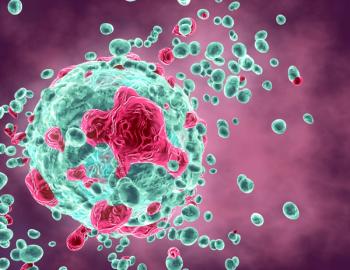
Rodney Pommier, MD, FACS, professor of surgery, Oregon Health & Science University, discusses what the study results demonstrated regarding treating carcinoid crisis without perioperative octreotide for patients with neuroendocrine tumors.
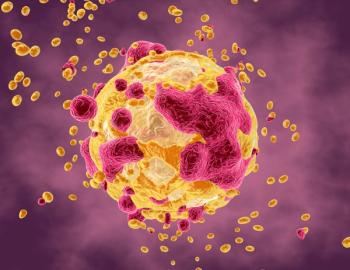
Rodney Pommier, MD, FACS, professor of surgery, Oregon Health & Science University, discusses what the study results demonstrated regarding treating carcinoid crisis without perioperative octreotide for patients with neuroendocrine tumors.
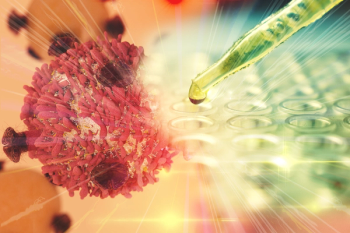
Rodney Pommier, MD, FACS, professor of surgery, division of surgical oncology, school of medicine, Oregon Health & Science University, discusses the selection of the patient populations included in the study of carcinoid crisis with no perioperative octreotide.
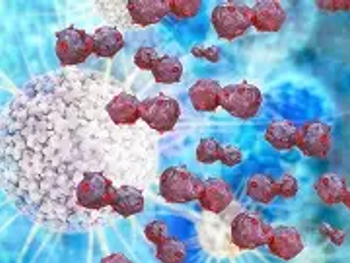
Nicole Ross, MSN, CRNP, AOCNP, nurse practitioner for the department of hematology/oncology at Fox Chase Cancer Center, discusses how targeted therapies are impacting the treatment of NETs.
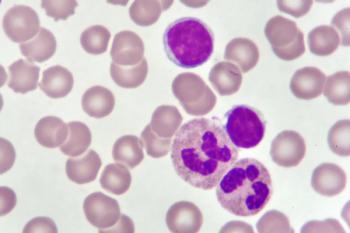
Mei Ka Fong, PharmD, BCOP, said sunitinib was the first targeted therapy for NETs, although other targeted agents are being investigated.

Rodney Pommier, MD, FACS, professor of surgery, division of surgical oncology, school of medicine, Oregon Health & Science University, addresses the questions surrounding the efficacy of perioperative octreotide treatment for patients experiencing a carcinoid crisis.
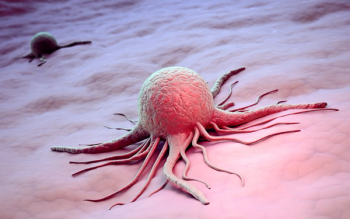
Kaushal Nanavati, MD, assistant dean of wellness and director of integrative medicine and survivorship at the Upstate Cancer Center discusses how CBD and cannabinol can offer potential treatment options as more research is being brought to the forefront on these as integrative medicine.

Rodney Pommier, MD, FACS, professor of surgery, division of surgical oncology, school of medicine, Oregon Health & Science University, discusses what octreotide is and how it is used to reduce carcinoid crisis rates or treat a crisis.
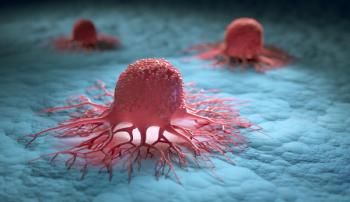
NETs can occur almost anywhere in the body, although they are most common in the gastrointestinal tract and lungs.
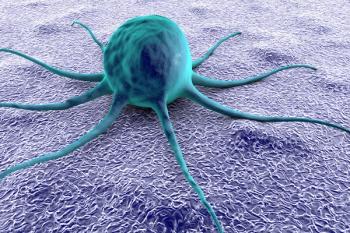
Rodney Pommier, MD, FACS, professor of surgery, division of surgical oncology, school of medicine, Oregon Health & Science University, discusses his presentation at the 2021 NANETS Virtual Symposium on a prospective study of carcinoid crisis with no perioperative octreotide.
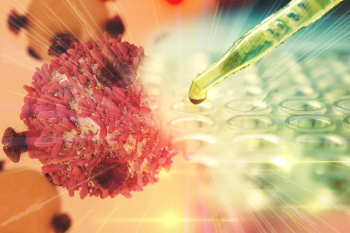
Nicole Ross, MSN, CRNP, AOCNP, nurse practitioner for the department of hematology/oncology at Fox Chase Cancer Center, discusses how communication plays a huge role in treatment of neuroendocrine tumors in large cancer centers.
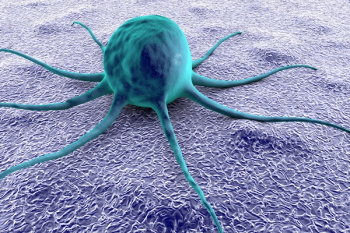
Kaushal Nanavati, MD, assistant dean of wellness and director of integrative medicine and survivorship at the Upstate Cancer Center discusses why integrative treatment can help physicians personalize treatments for individuals with NETs and why it is beneficial to improve the quality of life for them.